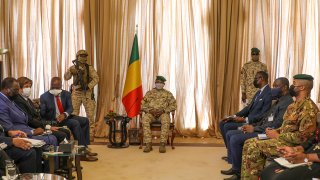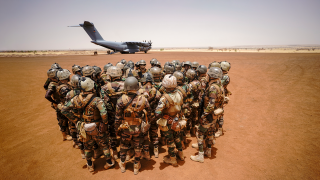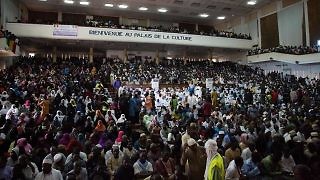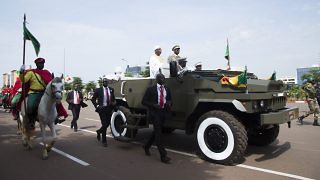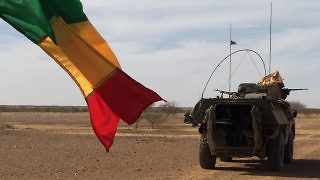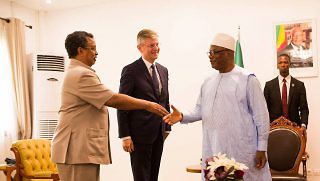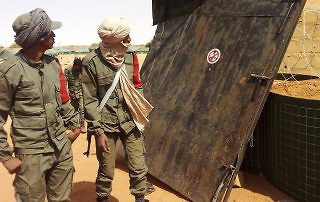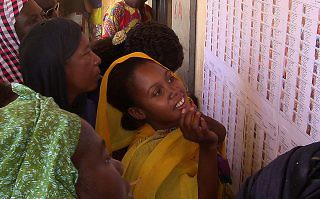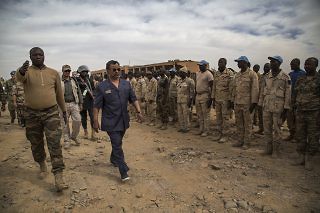Facing its most difficult period since its inception in April 2013, MINUSMA, and the Security Council, now need to acknowledge that their biggest problems in Mali are political.
Tag: mali
-
-
The complex, and not always coordinated, ecosystem of military operations across the Sahel has been aptly labeled a security traffic jam. Why are external forces in the Sahel? Can they help resolve any of the region’s crises? And, if so, what configuration of external forces makes the most sense?
-
The soft acceptance of the coup is ultimately a soft acceptance of the status quo in Mali.
-
Given that ordinary Malians would have so many reasons for resenting and overthrowing these figures, the question is particularly acute there—why has so much of the status quo persisted for so long?
-
The joint force should not become yet another pretext for not carrying out the needed governance reforms.
-
The interim authorities will need to be made operational—with competent staff and adequate financial means—so that they can start providing services to northern populations ahead of the regional elections that are supposed to be held in October or November 2017.
-
Despite its minor positive outcomes, preparation (or lack thereof) of the event highlighted existing societal divides and opposing points of view.
-
The patrols are meant to be a key step toward the goal of disarmament, demobilization, and reintegration—in other words, they should convince people to set down their weapons and pursue peace.
-
Bringing more parties on board has been a challenge during both the negotiation and implementation of the peace agreement.
-
Although no fixed definition of state authority has been established, the UN Peacebuilding Support Office’s Capstone doctrine of 2015 identified various measures for missions, including developing political participation, operationally supporting the immediate activities of state institutions, small-scale capacity building, and supporting constitutional and institutional restructuring.
